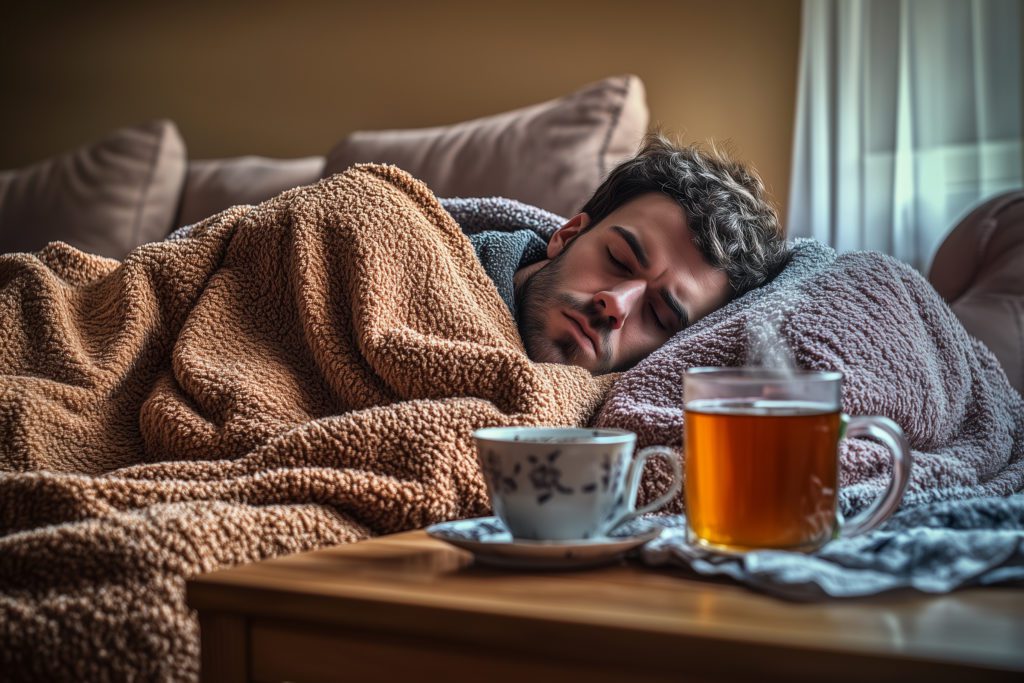
The Effect of Exercise on Sleep and IBS: Finding the Right Balance
Want better rest and digestive health? Learn about the benefits of exercise to enjoy better sleep and reduce IBS symptoms.

Today, 16% of all citizens across the United States struggle with the unpleasant symptoms of IBS, also known as irritable bowel syndrome. If you are one of these individuals, you’re not alone, but there are some ways to improve your symptoms. Exercise is tied to improvements in both sleep and IBS symptoms, but when should you exercise, and how often?
In this article, we’ll discuss four ways that exercise can help both sleep and IBS symptoms, including how it can reduce IBS symptoms and improve sleep quality, promote relaxation and less stress, and help you with gut motility. We’ll also explore the best time to work out for your IBS and to enjoy better sleep so you’ll be able to alleviate your symptoms and live a more pleasant, energized life.
Exercise Can Improve Sleep Quality and Lessen IBS Symptoms
As you might have guessed, exercise definitely can improve your sleep quality, but studies have also shown that it can help lessen IBS symptoms, too. One study conducted on patients in their adult years who suffered from IBS for more than a decade showed that not only did exercise assist with their GI symptoms, but they also experienced a better night’s sleep as a result (Source: Scandinavian Journal of Gastroenterology).
However, the study did express that it was essential to take a person-centered approach. After all, what may work for one person will not work for all people! Even then, this study was a promising example of how exercise, even just for as little as half an hour a day of light exercise, could promote better sleep and less overall IBS symptoms, including fatigue, bloating, and other challenges.
Another study confirmed this as well, showing that regular exercise and meals, as well as adequate sleep, promoted an alleviation of IBS symptoms. One could conclude that simply living a healthy lifestyle will help you overcome IBS symptoms and enjoy better sleep, and this is true! However, working out also has other benefits, such as reducing your stress and promoting greater relaxation, which in turn benefits your sleep and IBS.
Working Out Can Promote Relaxation and Reduce Stress
If you exercise regularly, you may find that you feel more relaxed and have less stress, and this isn’t by accident. Working out can help you relax and de-stress, but it also has a unique effect on your sleep and your IBS symptoms. Stress has been tied to mood disorders, digestive problems like IBS, and sleep disorders (Source: Mindfulness). Thus, if you can alleviate your stress and relax a bit more by working out regularly, then you can take steps to improve your IBS and even your nightly rest.
Out of all the exercise types, some are more effective at helping you de-stress and relax. These include, but are not limited to, yoga and other forms of light exercise. Specifically, yoga and meditation as a regular practice were also tied to a significant improvement in one’s sleep over time, as well as less stress, which directly leads to better immunity and digestive function. As you can see, working out can actually help you feel less stressed, but it can also, more specifically, help your gut health.
Getting to the Gym Can Regulate Gut Motility for Better Digestion and Sleep
One of the unknown effects of exercise is how getting in a gym session can actually aid in your gut motility. For those who are not aware of this term, gut motility is the movement of food through your digestive tract. When you exercise, you not only improve your body’s ability to move food throughout your digestive system, but you also encourage better gut bacteria, which helps your entire body (Source: Oxidative Medicine and Cellular Longevity).
When you have better digestion and fewer symptoms of IBS, your body is able to relax. Not only that, but your circadian rhythm actually controls your gastrointestinal system, so the relationship goes both ways. In other words, when you exercise, you support your gut health and encourage better sleep. The better your sleep, the better your IBS symptoms will be, and vice versa. That means that even walking for just half an hour a day can help you regulate your gut.
With a regulated gut, you alleviate a lot of stress and also encourage your body to stay at its healthiest. This is fascinating news for those who struggle with IBS and even those who simply want to improve their gut health. Yet, we still have yet to determine one thing: when is the best time to work out for better sleep and fewer IBS symptoms?
The Best Time to Exercise for Better Sleep and Lessened IBS Symptoms
For many people, finding the right time to work out is not only about avoiding specific unpleasant IBS symptoms but also about avoiding challenges to their ability to sleep. For that reason, much like people are recommended to do light exercise with IBS, you should focus on exercising in the afternoon, but not at night or in the morning. The reason to exercise in the afternoon is that many people struggle with IBS symptoms in the morning, which can make it harder to work out.
You should also avoid working out at night because people often experience a surge of energy after they have worked out. This can limit your ability to get to sleep, ultimately making you stay up later than you should. If you can get in some exercise in the morning after you see some improvements in your digestive health and sleep, then that is even better! As long as you’re doing light to moderate activities and not overworking yourself at the wrong times throughout the day, you’ll see improvements in your sleep and your IBS.
How Will You Fit Exercise in Your Schedule?
Now that you understand how exercise can benefit not only your sleep but also IBS, you can take steps to improve your health. It can be challenging to get your schedule organized, but with an idea of the best exercises and the best times to work out, you are on your way to a healthier lifestyle. We hope that this information provided you with some tips and tricks to improve your workouts!
FAQ
Are there any psychological therapies effective for IBS?
Yes, cognitive-behavioral therapy (CBT), hypnotherapy, and biofeedback can help manage IBS by addressing the brain-gut connection. These therapies reduce stress and anxiety, which not only trigger IBS symptoms but also disrupt sleep. By improving mental well-being, they can lead to better digestion, fewer IBS flare-ups, and more restful sleep.
How does hydration affect IBS symptoms?
Proper hydration is crucial for IBS management and overall well-being, including sleep quality. Water helps soften stool, preventing constipation, while also supporting digestion and nutrient absorption. Dehydration can lead to muscle cramps, headaches, and night-time discomfort, disrupting sleep. Those with diarrhea-predominant IBS should drink fluids with electrolytes to prevent dehydration that may further impact rest.
Is IBS linked to other conditions like anxiety or depression?
Yes, IBS is often associated with anxiety and depression due to the gut-brain connection. Stress can trigger IBS symptoms, while chronic digestive issues can worsen mental health. Addressing both conditions through therapy, medication, or stress management techniques can improve overall well-being.
How does sleep deprivation affect digestion and gut motility?
Lack of sleep disrupts the gut-brain axis, increasing stress hormones and inflammation, which can slow digestion or trigger diarrhea. Poor sleep also affects the production of key digestive enzymes, making IBS symptoms like bloating, cramping, and irregularity worse over time.
Can overtraining or excessive exercise worsen IBS symptoms?
Yes, excessive or high-intensity exercise can increase stress hormones like cortisol, leading to worsened IBS symptoms such as cramping and diarrhea. Overtraining can also cause fatigue and inflammation, making it harder for the body to regulate digestion. Balance is important.
Are there specific breathing exercises that help with both sleep and IBS?
Yes, deep breathing techniques like diaphragmatic breathing and the 4-7-8 method can reduce stress, improve digestion, and promote relaxation for better sleep. These exercises activate the parasympathetic nervous system, which helps regulate gut function and ease IBS symptoms.

Written by
Marie Soukup
Marie Soukup is a seasoned copywriter, editor, and Integrative Nutrition Health Coach with a certificate from the Institute of Integrative Nutrition (IIN). With years of experience working with brands across diverse industries, Marie is passionate about holistic health and crafting compelling content.
Download Pillow
Get help
Press & News
Legal
Connect
X (Twitter)
Company
Copyright © Neybox Digital Ltd.



